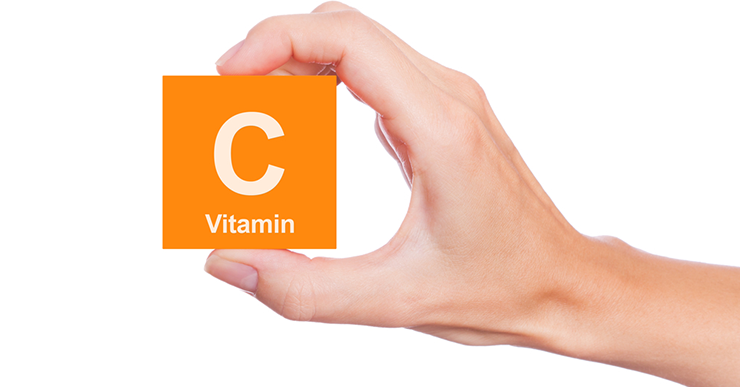Insufficient evidence of ascorbic acid vitamin C

There is insufficient evidence of ascorbic acid vitamin C
Vitamin C is a vitamin. Some animals can make vitamin C themselves, but people must obtain this vitamin from food and other sources. Vitamin C can also be made in the laboratory.
- Protein in urine (albuminuria). Taking vitamin C and vitamin E may reduce protein in the urine of diabetic patients.
- pollen allergy. The use of nasal sprays containing vitamin C seems to improve nasal symptoms in people who continue to have allergies throughout the year. Oral vitamin C may block histamine in patients with seasonal allergies. But the results are contradictory.
- Alzheimer’s disease. Increased intake of vitamin C in food is associated with a reduced risk of Alzheimer’s disease.
- Higher vitamin C intake from foods or supplements has nothing to do with reducing the risk of ALS.
- Aspirin damage to the stomach and intestines. Some studies have shown that taking vitamin C can prevent aspirin damage to the stomach. But other studies have shown conflicting results.
- Sports performance. Taking vitamin C supplements may improve teenage boys’ oxygen intake during exercise.
- Prone to allergies and allergic reactions (atopic diseases). A higher intake of vitamin C is not associated with a lower risk of eczema, wheezing, food allergies or allergic allergies.
- Attention deficit hyperactivity disorder (ADHD). Taking high doses of vitamins, including vitamin C, does not seem to relieve ADHD symptoms. However, taking lower doses of vitamin C with flaxseed oil may improve some symptoms, such as restlessness and self-control.
- Autism. Early research suggests that taking vitamin C may reduce the severity of autism symptoms in children.
- brain tumor. Increased intake of vitamin C is associated with a 14% reduction in the risk of brain cancer called glioma.
- Breast cancer. It is not known whether intake of more vitamin C from food can help prevent the development of breast cancer. However, taking more vitamin C from food seems to reduce the risk of death for people diagnosed with breast cancer. Similarly, taking vitamin C supplements after being diagnosed with breast cancer seems to help reduce the risk of dying from breast cancer.
- burn. Early studies have shown that receiving vitamin C infusion within 24 hours after severe burns can reduce wound swelling. It can also reduce the risk of death from hospitalization.
- cancer. Higher intake of vitamin C from food is associated with a lower risk of cancer. But taking vitamin C supplements does not seem to prevent cancer. In people diagnosed with advanced cancer, oral administration of large doses (10 grams) of vitamin C does not seem to improve survival or prevent cancer from worsening. However, high doses of vitamin C may increase survival rates when given intravenously.
- cataract. Increased intake of vitamin C in food is associated with a reduced risk of cataracts. Some early studies have shown that people who take vitamin C supplements for at least 10 years have a lower risk of cataracts. However, taking supplements containing vitamin C in less time seems to be of no avail.
- Cervical cancer. Early research has shown that increasing the intake of vitamin C can reduce the risk of cervical cancer.
- Kidney damage caused by colicin. Early research shows that intravenous vitamin C does not prevent kidney damage caused by colicin.
- Renal damage caused by contrast media (nephropathy caused by contrast media). Some studies have shown that taking vitamin C before and after receiving contrast agents can help reduce the risk of kidney damage. But other studies have shown that this will not work.
- Surgery to improve blood flow to the heart (CABG surgery). Receiving vitamin C via IV before and during CABG surgery may improve blood flow after surgery. This may also shorten the residence time in the ICU slightly.
- Dental plaque. Chewing gum with vitamin C seems to reduce plaque.
- Depression. Early studies have shown that the use of vitamin C with the antidepressant fluoxetine can reduce the symptoms of depression in children and adolescents compared to fluoxetine alone. However, compared with citalopram alone, taking vitamin C with the antidepressant citalopram does not better reduce the symptoms of depression in adults.
- diabetes. Taking vitamin C supplements may improve blood sugar control in diabetic patients. But the results are contradictory. Similarly, higher intake of vitamin C from food has nothing to do with reducing the risk of diabetes.
- Heart damage caused by the drug doxorubicin. Early research has shown that taking vitamin C, vitamin E, and N-acetylcysteine ??can reduce heart damage caused by doxorubicin.
- Dry mouth. Taking vitamin E and vitamin C twice a day seems to reduce dry mouth in people receiving radiotherapy for head and neck cancer.
- Endometrial cancer (endometrial cancer). Higher intake of vitamin C from food may be related to reducing the risk of endometrial cancer. But there are contradictory results.
- Esophageal cancer. Taking vitamin C with ?-carotene plus vitamin E does not reduce the risk of esophageal cancer. However, a higher intake of vitamin C in food is associated with a lower risk of esophageal cancer.
- Asthma caused by exercise. Taking vitamin C can prevent asthma caused by exercise.
- Muscle damage caused by exercise. Taking vitamin C before riding a bike does not seem to prevent muscle damage.
- Gallbladder disease. Taking vitamin C may help prevent gallbladder disease in women, not men.
- Stomach cancer. In most studies, higher vitamin C intake from food has no relationship with the risk of stomach cancer. In addition, taking vitamin C with other antioxidants does not seem to prevent gastric cancer. However, taking vitamin C supplements may prevent the development of precancerous lesions in high-risk groups into cancer. This includes people who have previously been treated for Helicobacter pylori infection.
- Hearing loss. Early research suggests that when used with steroid therapy, vitamin C may improve hearing for people who are suddenly deaf.
- Complications after heart transplantation. Early research shows that taking vitamin C and vitamin E one year after a heart transplant helps prevent arteriosclerosis.
- HIV/AIDS. Taking high or low doses of vitamin C and other antioxidants does not reduce the level of HIV in the blood of HIV/AIDS patients.
- HIV transmission. Taking vitamin C with vitamin B and vitamin E during pregnancy and breastfeeding seems to reduce the risk of transmitting HIV to the baby.
- High levels of phosphate in the blood (hyperphosphatemia). Patients with kidney disease undergoing dialysis often have higher blood phosphate levels. Intravenous vitamin C seems to reduce the phosphate levels in these people.
- Cannot get pregnant (infertility) within one year of trying to conceive. Early evidence suggests that women with certain fertility problems may benefit from taking vitamin C daily.
- People with little or no alcohol (non-alcoholic steatohepatitis or NASH) swell (inflame) and accumulate fat in the liver. Taking vitamin C together with vitamin E may reduce liver scarring in patients with liver disease called non-alcoholic steatohepatitis. But this does not seem to reduce liver swelling.
- Cancer that begins with white blood cells (non-Hodgkin’s lymphoma). Increased intake of vitamin C in food or supplements is associated with a reduced risk of non-Hodgkin’s lymphoma in postmenopausal women.
- Oral Cancer. Higher intake of vitamin C from food is associated with a lower risk of oral cancer.
- White patches in the mouth are usually caused by smoking (white patches in the mouth). Taking beta-carotene with vitamin C does not reduce oral leukoplakia or oral cancer in smoking men.
- Osteoporosis. Some studies have shown that vitamin C may improve bone strength. But higher blood levels of vitamin C in postmenopausal women are associated with lower bone mineral density. More information is needed about the effect of vitamin C on bone mineral density.
- Ovarian cancer. Increased intake of vitamin C in food has nothing to do with reduced risk of ovarian cancer.
- Parkinson’s syndrome. Increased intake of vitamin C in food is not associated with a reduced risk of Parkinson’s disease.
- Vessel stenosis leads to poor blood flow to the limbs (peripheral artery disease). Increased intake of vitamin C in food is associated with a lower risk of developing poor blood circulation in women rather than men.
- Physical performance. Getting more vitamin C in the diet may improve the physical function and muscle strength of the elderly. However, taking vitamin C with vitamin E does not improve the muscle strength of women or older men who are doing strength training programs.
- Pneumonia. Some studies have shown that vitamin C may reduce the risk of pneumonia and reduce the duration of its development into pneumonia. This effect seems to be greatest in people with low vitamin C levels before treatment. It is not clear whether vitamin C is beneficial to people with normal vitamin C levels.
- Infection after surgery. Early research suggests that intravenous (intravenous) vitamin C may increase the survival rate of patients who have undergone surgery and have developed septic shock.
- Open (rupture) the amniotic sac before delivery. Taking vitamin C alone during pregnancy may help prevent the amniotic sac from rupturing before delivery. However, taking vitamin C with other supplements does not seem to help prevent the amniotic sac from rupturing before delivery. However, taking vitamin C and vitamin E in the second or third trimester of pregnancy will continue until delivery, which may help delay the delivery of pregnant women with premature rupture of the amniotic sac.
- Pressure ulcers (pressure ulcers). Some studies have shown that taking vitamin C does not improve wound healing in people with pressure sores. But other studies have shown that taking vitamin C can reduce the occurrence of pressure sores.
- Inflammation and rectal damage caused by radiation therapy. Early research suggests that taking vitamin C and vitamin E may improve some symptoms caused by rectal radiation therapy.
- Kidney cancer. Increased vitamin C intake is associated with a 12% reduction in kidney cancer risk.
- Disorders that cause discomfort in the legs and discomfort to move the legs (restless leg syndrome or RLS). Taking vitamin C alone or with vitamin E seems to reduce the severity of leg agitation syndrome in hemodialysis patients. However, it is unclear whether vitamin C is beneficial to patients with leg restless syndrome unrelated to hemodialysis.
- Sickle cell anemia. Taking vitamin C with aging garlic extract and vitamin E may benefit people with sickle cell disease.
- pressure. Early research suggests that vitamin C may lower blood pressure and symptoms during times of mental stress.
- Stroke. Increased intake of vitamin C in food seems to be associated with a reduced risk of stroke. But there are contradictory results. Taking vitamin C supplements does not seem to reduce the risk of stroke.
- Severe infection caused by Clostridium (tetanus). Taking vitamin C with conventional treatment seems to reduce the risk of death in children with tetanus.
- Kidney, bladder or urinary tract infection (urinary tract infection or urinary tract infection). Studies have shown that taking vitamin C cannot prevent UTI in the elderly.
- Dementia caused by decreased cerebral blood flow (vascular dementia). Among Japanese men, the increased intake of vitamin C and vitamin E in supplements does not appear to be related to a reduced risk of vascular dementia.
- Acne.
- Cavity.
- Chronic Fatigue Syndrome (CFS).
- Constipation.
- Cystic fibrosis.
- Kidney disease.
- Lyme disease.
- Blood infection (septicemia).
- Tuberculosis.
- wound healing.
- Other conditions.
More evidence is needed to assess these uses of vitamin C.
- Acide Cévitamique
- Acide Iso-Ascorbique
- Acide L-Ascorbique
- Acido Ascorbico
- Antiscorbutic Vitamin
- Ascorbate
- Ascorbate de Calcium
- Ascorbate de Sodium
- Ascorbic acid
- Ascorbyl Palmitate
- Calcium Ascorbate
- Cevitamic Acid
- Iso-Ascorbic Acid
- L-Ascorbic Acid
- Magnesium Ascorbate
- Palmitate d'Ascorbyl
- Selenium Ascorbate
- Sodium Ascorbate
- Vitamina C
- Vitamine Antiscorbutique
- Vitamine C
J
Coffee for us
Related Posts

D
Deepak Sudera
0
0
Expert Installation: Tips for Choosing Air Conditioning in Brisbane
August 30, 2024
Save

D
Deepak Sudera
0
0
How to Maintain a Rotary Vane Air Compressor
August 20, 2022
Save

D
Deepak Sudera
0
0
Pet Hospital Logo Design Samples
July 19, 2022
Save
More Posts By Author

J
Jaspreet Sudera
0
0
Manhattan Apartments Logo Design Sample
September 16, 2022
Save

J
Jaspreet Sudera
0
0
Metropolis Real Estate Logo Design Sample
September 16, 2022
Save

J
Jaspreet Sudera
0
0
What kind of casino player is suitable for High Stakes Online Casino?
June 1, 2021
Save

J
Jaspreet Sudera
0
0
Top 6 Latest Whatsapp Status for Business
April 29, 2022
Save

